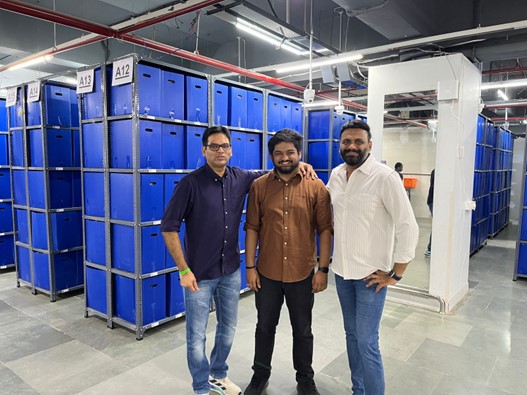The Future of Fashion: Our Investment in Zilo

The Fashion Retail Paradox in India
The numbers highlight a significant opportunity waiting to be unlocked. Fashion, as one of the largest consumer categories at $75–80 Bn within the broader $130 Bn lifestyle market, is witnessing strong tailwinds. Notably, premium fashion is the fastest-growing segment, expanding at a 12–15% CAGR, more than double the overall fashion market’s 6% growth. Yet, online penetration remains disproportionately low compared to other categories like electronics and groceries, presenting a compelling white space for digital-first innovationWhy Zilo Represents a New Paradigm
Zilo, founded by Padmakumar Pal and Bhavik Jhaveri, combines the perfect blend of industry expertise and innovative thinking. Padma’s extensive background as Vice President and Head of Apparel at Flipkart and former VP at Myntra, combined with Bhavik’s product expertise and previous entrepreneurial experience, positions the team uniquely to address fashion retail’s core challenges.- Experience-First Model:Zilo offers scheduled home trials, instant returns, and AI-powered style recommendations, essentially bringing the trial room to the customer’s doorstep. This addresses the fundamental barrier of not being able to physically experience products before purchase.
- Curated Speed:Unlike broad-based quick commerce platforms, Zilo focuses specifically on fashion, delivering products from over 250 brands, including Levi’s, Louis Philippe, Puma, and The Souled Store, within 60 minutes. This specificity allows for better inventory management and customer service.
- Hybrid Supply Chain:The company has built a hybrid supply chain model that combines the convenience of online shopping with the assurance of physical retail, addressing the trust and reliability concerns that have limited fashion e-commerce adoption.



Our Thesis
Our investment thesis in fashion has been shaped by our experiences as early backers of category-defining companies. When we invested in Myntra at an early stage, we recognised the potential of online fashion retail but also learned about the sector’s inherent complexities.Myntra’s journey from a personalized gifts platform to India’s largest fashion e-commerce destination taught us valuable lessons about the importance of brand partnerships, supply chain efficiency, and customer trust. However, challenges around discovery, experience, and curation still persist.
Similarly, our involvement with omnichannel success stories, such as FirstCry and Lenskart, revealed the power of creating seamless experiences across digital and physical touchpoints. FirstCry’s ability to solve the trust and experience challenges specific to the baby care category and Lenskart’s approach to combining online discovery with offline trials demonstrated how category-specific solutions could drive unprecedented growth.
The timing for Zilo’s approach couldn’t be better. Quick commerce in fashion is transforming retail in India, with the segment expected to grow at 75-85% annually. The market is expected to reach $6 billion in Gross Merchandise Value (GMV) in FY 2025, driven by a younger, technology-savvy generation that expects convenience without compromise. Horizontal platforms would not be able to solve the challenges in fashion due to inherent limitations on curation, especially for the segment that aspires for mid-premium fashion catalogue.
Metro cities like Mumbai, Bangalore, and Delhi/NCR, where Mumbai leads with 25% of fashion store footfall, followed by Bangalore at 18% and Delhi/NCR at 17%, represent the primary target market for Zilo’s premium, experience-focused approach. These cities have the demographic profile and purchasing power to appreciate the value proposition of curated, fast fashion delivery.
The emergence of home trials as a successful model has already been proven in other categories. Companies like Bluestone have achieved 50%+ conversion rates through their home try-on service, demonstrating the power of bringing the physical experience to the customer’s location
